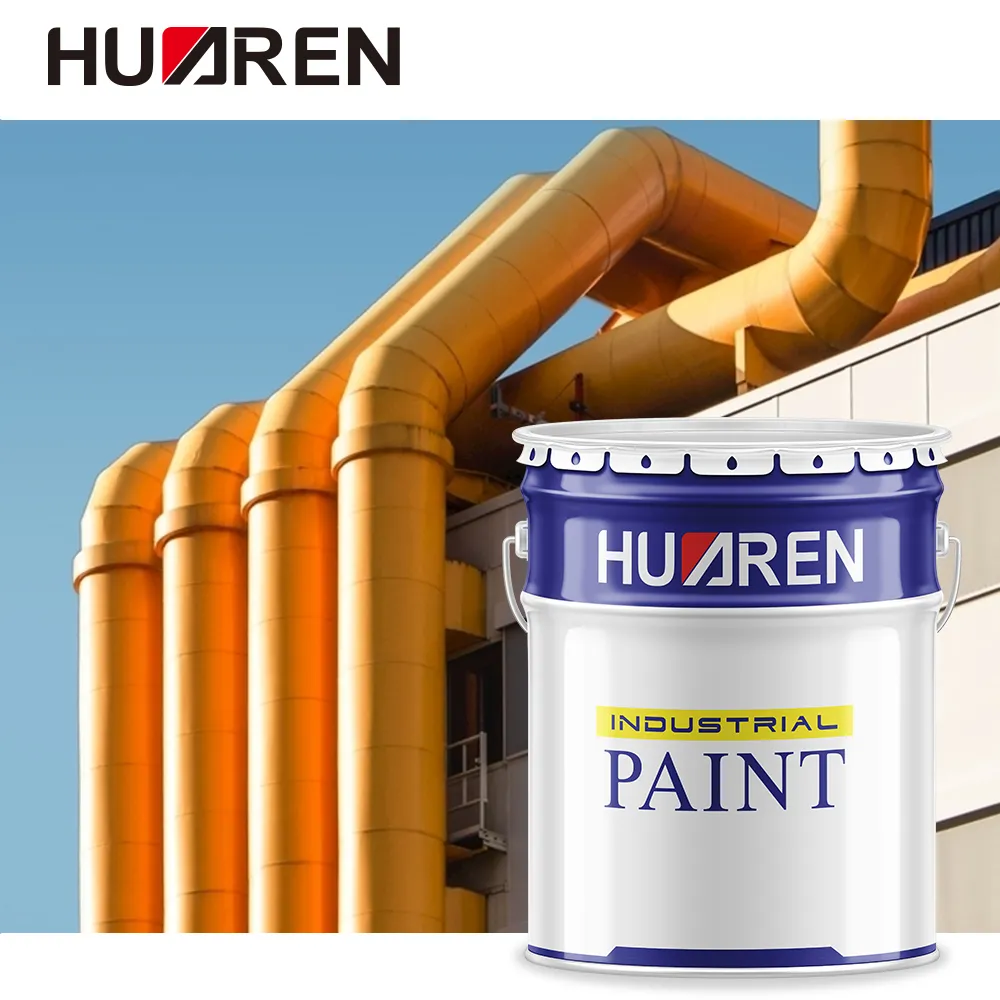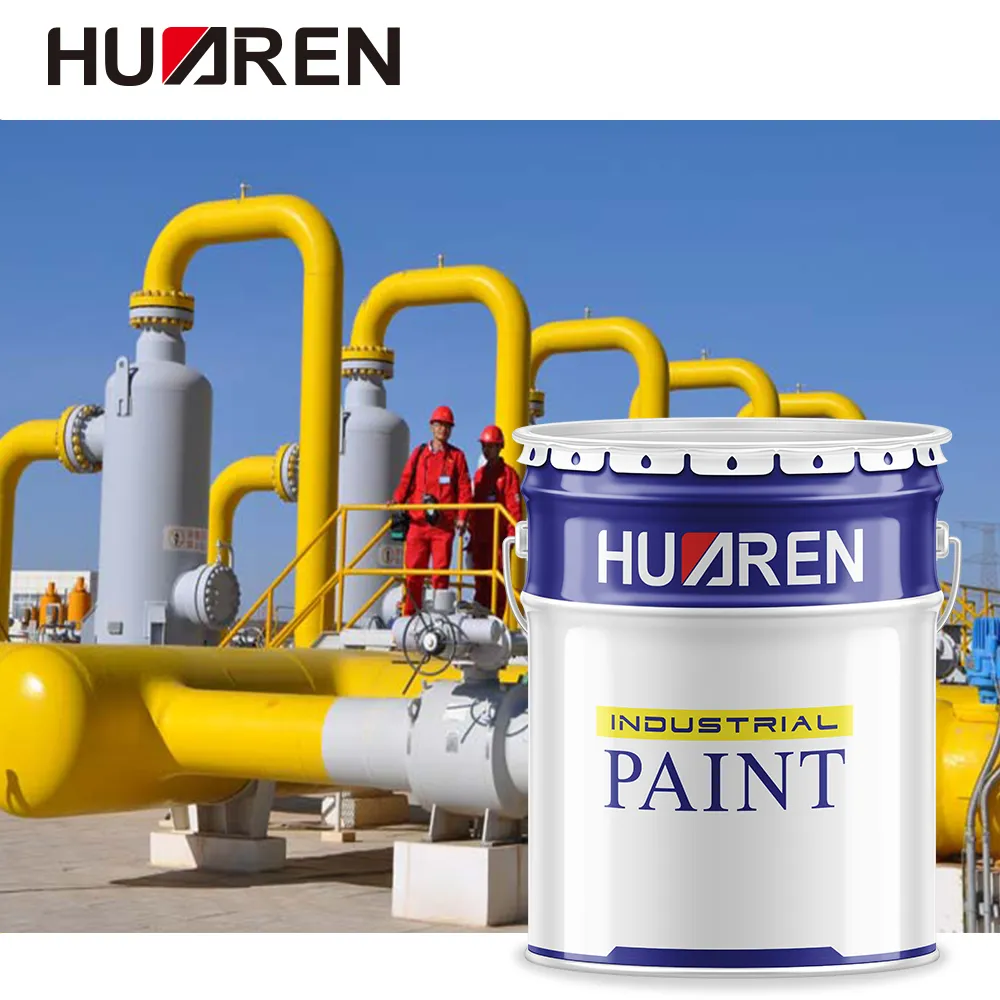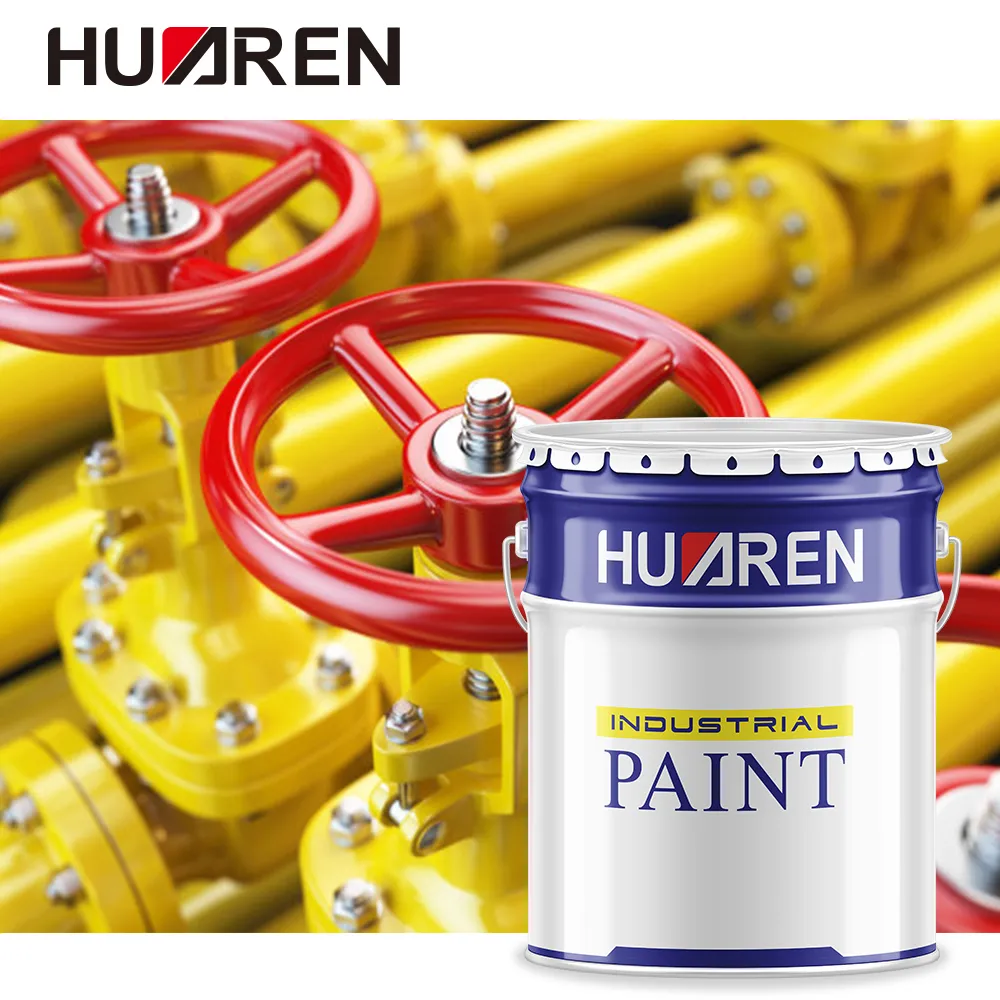Steel, as a material widely used in various industries such as construction, manufacturing, and transportation, is highly favored due to its high strength and good processing performance. However, steel also has a significant drawback, which is that it is easily affected by the environment and corrodes. In harsh environments such as humidity and salt spray, steel that has not undergone anti-corrosion treatment may quickly rust, resulting in a decrease in structural strength and even serious safety hazards. Therefore, the selection and application of anti-corrosion coatings become the key to protecting steel and extending its service life.
So, which anti-corrosion coating is best for steel? This article will answer this question for readers by looking at the different types of anti-corrosion coatings, their mechanisms of action, and their advantages and disadvantages.

What is the principle of anti-corrosion coating?
The main function of anti-corrosion coating is to prevent corrosive media (such as water, oxygen, salt, etc.) from direct contact with the steel surface, thereby slowing down or stopping the corrosion process. Corrosion usually occurs with oxidation, and rust forms when steel is exposed to oxygen and moisture in the air. This not only affects the appearance of the steel, but also weakens its structural strength. Anti-corrosion coatings protect steel through physical barriers or chemical reactions, ensuring its stability under various environmental conditions.
There are many types of anti-corrosion coatings, the most common ones are epoxy coatings, polyurethane coatings, zinc-rich coatings, fluorocarbon coatings, etc. Different coatings are suitable for different application scenarios. When selecting an anti-corrosion coating suitable for steel, the application environment, cost, construction technology and anti-corrosion performance should be comprehensively considered.

What are the common types of anti-corrosion coatings?
Common types of anti-corrosion coatings
1. Epoxy coating
2. Polyurethane coating
3. Zinc-rich coating (zinc-rich primer)
4. Fluorocarbon coating
Epoxy coating
Epoxy coating is a widely used anti-corrosion coating that excels in protecting steel due to its good adhesion, chemical resistance and mechanical strength. Epoxy coating is composed of epoxy resin and curing agent, which forms a solid protective film after curing, which can effectively isolate air and moisture. Advantages include:
● High adhesion: Epoxy coating can adhere tightly to the steel surface to prevent the coating from peeling off.
● Chemical corrosion resistance: Epoxy coatings exhibit good resistance to corrosive media such as acids, alkalis, and salts.
● Wear resistance: Epoxy coating has strong mechanical strength and can withstand certain friction and impact.
However, epoxy coatings also have their disadvantages. For example, epoxy coatings are susceptible to aging and chalking under ultraviolet (UV) exposure, so they often need to be used in conjunction with other types of coatings, such as polyurethane coatings, especially in outdoor environments.
Polyurethane coating
Polyurethane coating is an anti-corrosion coating with excellent weather resistance, especially suitable for outdoor environments. Polyurethane coating not only has high anti-corrosion performance, but also has good gloss and color stability. Therefore, it is often used in steel structure protection occasions where it is necessary to maintain a beautiful appearance for a long time. Its main advantages include:
● UV resistance: Unlike epoxy coatings, polyurethane coatings will not chalk or age under strong sunlight, making them suitable for steel structures exposed outdoors for a long time.
● Strong wear resistance: Polyurethane coating can withstand high-intensity mechanical friction and is suitable for high-traffic areas or steel structures subject to frequent impacts.
● Excellent decorative effect: Due to its high gloss and rich color selection, polyurethane coating is often used in building steel structures or bridges with high aesthetic requirements.
However, the cost of polyurethane coating is relatively high, and there are high requirements for construction conditions during the coating process, and special attention must be paid to the control of ambient temperature and humidity.
Zinc-rich coating (zinc-rich primer)
Zinc-Rich Primer is an anti-corrosion coating based on the principle of cathodic protection and contains a large amount of zinc powder. In the coating, the zinc content usually reaches more than 80%. Zinc acts as a sacrificial anode and preferentially undergoes oxidation reaction, thereby protecting the steel from corrosion. Zinc-rich coatings are widely used in bridges, ships, petrochemical equipment and other fields that require high-strength corrosion protection. Its advantages include:
● Cathodic protection: Even if the coating is partially damaged, the zinc powder can continue to protect the exposed steel and slow down the corrosion rate.
● Excellent weather resistance: Zinc-rich coatings perform well in humid, marine environments and can resist corrosion from salt spray.
Zinc-rich coatings are often used in conjunction with epoxy or polyurethane topcoats to enhance their overall protective effectiveness. Its disadvantages are high zinc content and thick coating, which can easily lead to complicated construction and high cost.
Fluorocarbon coating
Fluorocarbon coating is a high-end anti-corrosion coating. It is widely used in the protection of steel structures in highly corrosive environments such as bridges, ships, and petrochemical equipment due to its excellent weather resistance and corrosion resistance. The molecular structure of the fluorocarbon coating is very stable and can effectively resist erosion by environmental factors such as ultraviolet rays, acid rain, and salt spray. Advantages include:
● Super weather resistance: Fluorocarbon coating can resist the erosion of ultraviolet rays, oxidation and chemicals in the environment for a long time, and its service life can reach more than 20 years.
● Chemical resistance: Fluorocarbon coating can remain stable even in extreme chemical environments such as strong acids and alkalis and is not prone to chemical reactions.
● Self-cleaning performance: The fluorocarbon coating has a smooth surface, good anti-fouling properties, and is easy to clean and maintain.
Although fluorocarbon coatings have excellent performance, they are expensive and complex to construct, requiring specialized construction equipment and technical support.

How to choose the most suitable anti-corrosion coating?
When selecting anti-corrosion coatings for steel, comprehensive considerations should be made based on specific application scenarios and environmental conditions. If the steel is exposed to moisture, high salinity or strong acid and alkali environment, zinc-rich coatings with cathodic protection or fluorocarbon coatings with strong weather resistance are preferred. If it is used in an ordinary indoor environment, epoxy coating can also provide sufficient protection. If there are high requirements on appearance, such as steel structures of buildings or steel protection of public facilities, polyurethane coating or fluorocarbon coating is a better choice because of its good color stability and decorative effect.
In addition, the choice of anti-corrosion coating also needs to be combined with the budget. Epoxy coatings are relatively low cost and suitable for projects with a limited budget. Although fluorocarbon coatings have excellent performance, they are relatively expensive and are only suitable for high-end projects or critical steel structures. Some anti-corrosion coatings have high requirements on the construction environment, such as temperature, humidity, etc. Choosing a coating that is suitable for the current construction conditions can avoid poor protective effects caused by improper construction.
For high-quality industrial coatings at competitive prices, Huaren Chemical Industry Co., Ltd. is your trusted partner. Founded in 1994, we are a top-tier manufacturer and supplier in China, producing over 20,000 tons of premium paints and resins annually. Our factory operates 30 cutting-edge paint production lines and 6 resin production lines, ensuring reliable supply and bulk purchasing options for customers worldwide. We offer a diverse product portfolio, including heavy-duty corrosion-resistant paints, water-based industrial coatings, and acrylic paints. These products are widely used in petrochemical plants, steel structures, and shipbuilding industries. With a focus on providing low prices, wholesale deals, and tailored solutions, we serve markets across Africa, Southeast Asia, and Europe. Whether you're Looking to buy in bulk or need customized solutions for your project, Huaren Chemical ensures quality and value. Contact us today for quotes and promotional offers.

